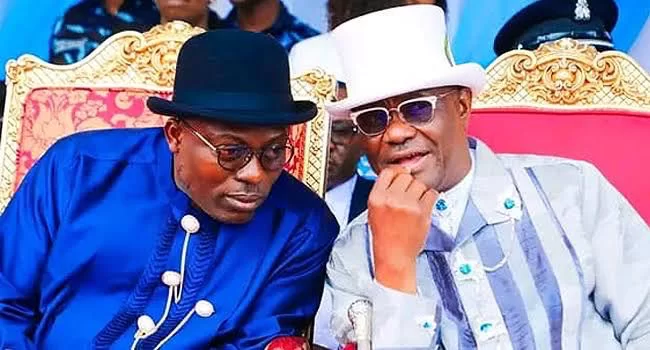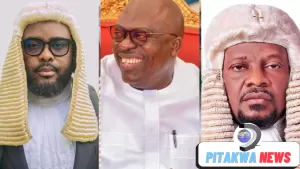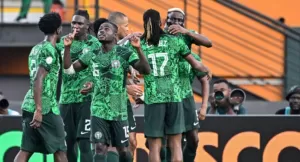Gov Fubara is Responsible For The Crisis In Rivers State Says FCT Minister

The statement by Nyesom Wike, the Minister of the Federal Capital Territory (FCT), accusing Governor Siminalayi Fubara of being responsible for the crisis in Rivers State, reflects a complex political and legal dispute. Here’s what’s been happening based on recent events:
- Origin of the Crisis: The current tension seems to stem from local government elections in Rivers State, where there was a dispute over the legality of these elections. Wike accuses Fubara of not adhering to a court judgment regarding these elections, which he claims has led to violence and instability.
- Wike’s Perspective: Wike, who is Fubara’s predecessor as Governor of Rivers State before taking up his role as FCT Minister, has openly criticized Fubara. He claims to have supported Fubara’s rise to power but now sees him as responsible for the unrest due to what he describes as Fubara’s disregard for the rule of law. Wike has particularly highlighted Fubara’s refusal to obey a court’s judgment as the catalyst for the crisis.
- Fubara’s Actions: In response to the violence, Governor Fubara established a Judicial Commission of Inquiry to investigate the incidents, aiming to identify causes, assess damage, and recommend preventive measures for future incidents. This move was contested by Wike, who felt it unnecessary if Fubara already knew the perpetrators.
- Political Dynamics: The feud between Wike and Fubara has deeper political undercurrents, involving power dynamics within the state and potentially within their political party, the Peoples Democratic Party (PDP). Wike has publicly challenged Fubara’s governance, questioning his actions and decisions.
- Public and Political Reaction: The situation has drawn attention beyond Rivers State, with figures like Senator Natasha Akpoti-Uduaghan calling for presidential intervention, highlighting the national security implications of the unrest.
- Implications for Governance and Law: This situation underscores issues of governance, respect for judicial processes, and the rule of law. Wike’s critique focuses on Fubara’s alleged disregard for legal directives, suggesting a broader commentary on how political leaders handle legal challenges to their actions.
In essence, while Wike accuses Fubara of instigating the crisis through his actions against judicial decisions, Fubara’s establishment of a judicial inquiry might be seen as an attempt to address the violence legally, albeit criticized by Wike for its relevance. This scenario paints a picture of a deep political rift, where personal and political ambitions clash, affecting governance and public order in Rivers State.




